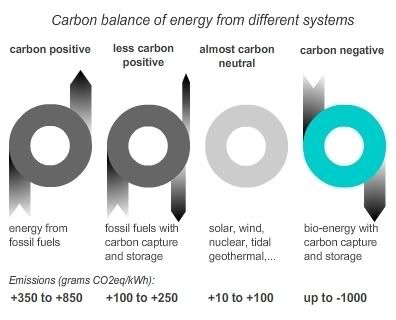Geotimes focuses on the biochar revolution
The upcoming July issue of Geotimes, a publication of the American Geological Institute which deals with earth, energy and the environment, will focus on the growing biochar revolution. Check out this short teaser video, but don't forget to watch the second, much more in-depth presentation as well:
This second video offers a very good, longer introduction to 'terra preta' and its modern variant known as biochar. It was made by ABC News in Australia, where the concept is making serious head way.
It seems like the idea to use soils as carbon sinks - by putting biochar obtained from the production of carbon-negative energy into them -, is rapidly becoming one of the winning technologies with which to combat climate change. One advocate of the concept of biochar is NASA's Dr James Hansen, who says we need to implement it in order to put humanity on track to reach a goal of reducing atmospheric CO2 levels from today's 387ppm to 350ppm (previous post).

This 350ppm target means we do not merely need to 'reduce' our emissions, which we could do by investing in carbon-neutral energy technologies like wind or solar. No, we need to go much further. 350ppm means we actively need to take CO2 out of the atmosphere. Biochar based 'negative emissions' energy is capable of doing this.
One of the organisations testing the concept is the Biochar Fund. It studies the application of biochar at the tropical forest frontier, because it is there where it may yield many additional benefits - from ending rural poverty, and slowing deforestation, to reducing hunger and putting an end to energy poverty.
 ethanol :: biomass :: bioenergy :: biofuels :: energy :: sustainability :: biochar :: agrichar :: terra preta :: carbon-negative :: climate change ::
ethanol :: biomass :: bioenergy :: biofuels :: energy :: sustainability :: biochar :: agrichar :: terra preta :: carbon-negative :: climate change ::
This second video offers a very good, longer introduction to 'terra preta' and its modern variant known as biochar. It was made by ABC News in Australia, where the concept is making serious head way.
It seems like the idea to use soils as carbon sinks - by putting biochar obtained from the production of carbon-negative energy into them -, is rapidly becoming one of the winning technologies with which to combat climate change. One advocate of the concept of biochar is NASA's Dr James Hansen, who says we need to implement it in order to put humanity on track to reach a goal of reducing atmospheric CO2 levels from today's 387ppm to 350ppm (previous post).

One of the organisations testing the concept is the Biochar Fund. It studies the application of biochar at the tropical forest frontier, because it is there where it may yield many additional benefits - from ending rural poverty, and slowing deforestation, to reducing hunger and putting an end to energy poverty.
 ethanol :: biomass :: bioenergy :: biofuels :: energy :: sustainability :: biochar :: agrichar :: terra preta :: carbon-negative :: climate change ::
ethanol :: biomass :: bioenergy :: biofuels :: energy :: sustainability :: biochar :: agrichar :: terra preta :: carbon-negative :: climate change ::  --------------
--------------
 Mongabay, a leading resource for news and perspectives on environmental and conservation issues related to the tropics, has launched Tropical Conservation Science - a new, open access academic e-journal. It will cover a wide variety of scientific and social studies on tropical ecosystems, their biodiversity and the threats posed to them.
Mongabay, a leading resource for news and perspectives on environmental and conservation issues related to the tropics, has launched Tropical Conservation Science - a new, open access academic e-journal. It will cover a wide variety of scientific and social studies on tropical ecosystems, their biodiversity and the threats posed to them.









2 Comments:
Can Geotimes sell me some of those hypothetical terra preta carbon negative credits? Taking the wife and kids to Alberta for holiday -- http://jcwinnie.biz/wordpress/?page_id=2946 driving up in my new Toyota "No Permafrost" Tundra and am worried about my carbon footprint.
Jcwinnie, it's early days. Just give the idea a chance, willya? ;-)
Best,
Jonas
Post a Comment
Links to this post:
Create a Link
<< Home